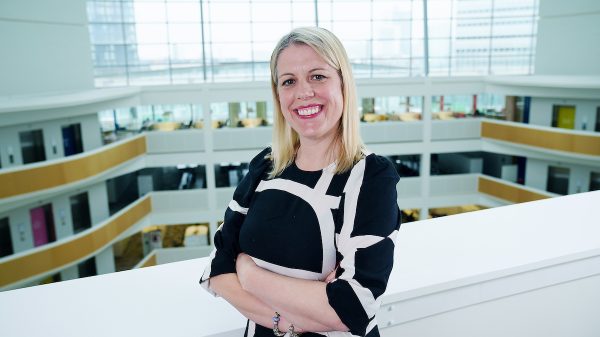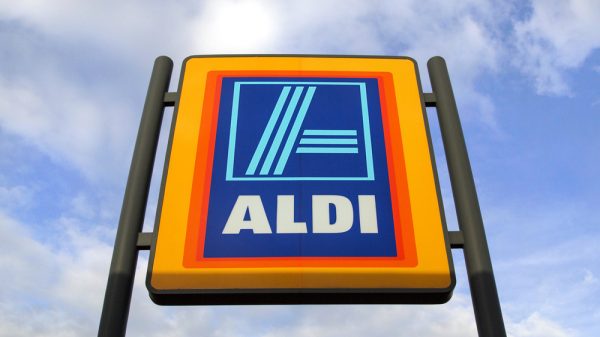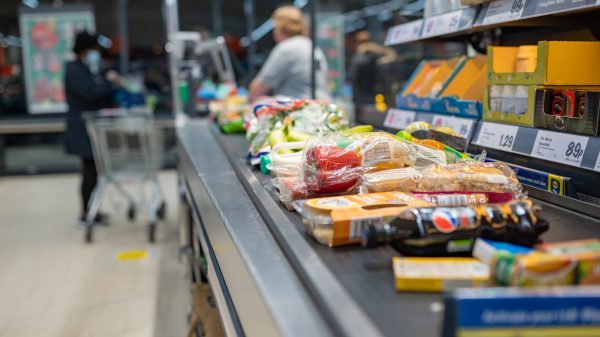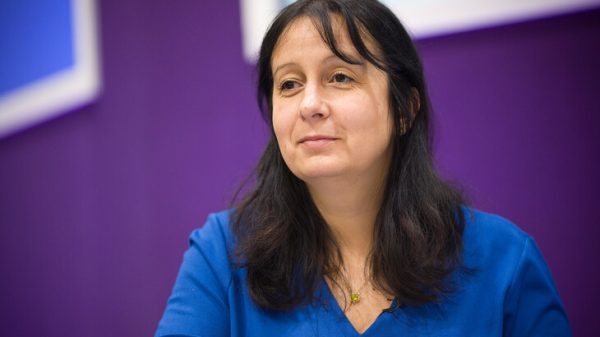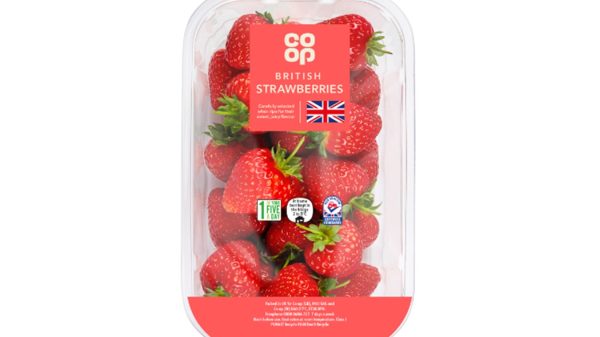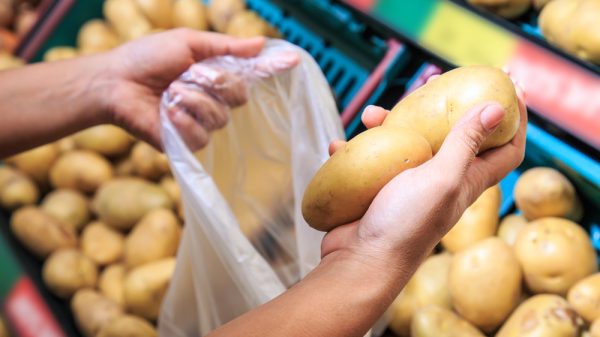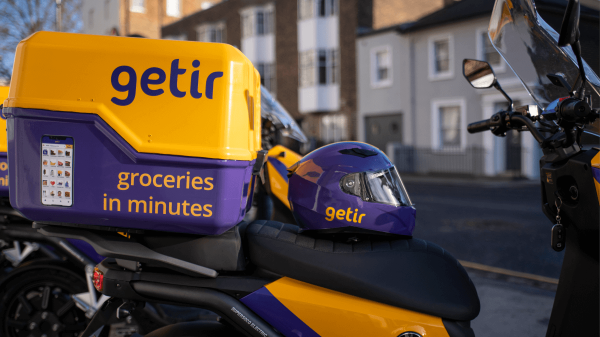“We don’t want people to stop going to the shops. In fact, it’s quite the opposite. We want people to continue going to their local stores.”
It’s a surprising opener from Bother’s chief executive Douglas Morton, but in a world where speedy delivery is king, it takes a certain amount of confidence to launch a delivery service which takes at least 24 hours to reach the doorstep.
The next-day grocery delivery service launched in 2020, and Morton – who is an advocate for in-person fresh food shopping – believes in his model, states simply that consumers should: “Shop fresh locally, and for everything else, Bother.”
In an industry dominated by major players and new delivery services such as Zapp and Deliveroo which can deliver product in ten minutes, what space is there for Bother?
Before launch, the team spent seven months researching the grocery sector, analysing consumer trends to paint a picture of the current market. It found that two-third of shoppers (66%) don’t like the way they’re doing their grocery shopping. So how could Bother improve that?
Of course, what makes Bother unique in the market is its next-day delivery offer. It seems strange that next-day delivery is considered slow these days, but when consumers can get their fresh avocados or bananas sent to their doorstep in less than 10 minutes, this is our reality.
READ MORE: The rapid grocery delivery trials: who comes out on top?
Nonetheless, Morton insisted that Bother’s customer base isn’t impacted by rapid grocers. To an extent, he says they actually helped pave the way for the new grocery company.
“With Q-commerce, the high-frequency items are being delivered to us in a manner in which we consume them; that is, on a high-frequency basis.”
Morton argues that while consumers like high-frequency items such as fresh food to be delivered quickly, are they shopping for lower frequency items such as toilet roll and hand wash in the same way?
“People actually quite enjoy shopping for food in stores and on-demand because it’s part of the choose choice mechanism,” he explains.
“It’s like, they maybe haven’t decided what they’re going to eat tonight yet. So they walk around, and they browse for all those things.”
With the ‘fun’ items now accessible to consumers in just 10 minutes and a press of a button, consumers are less likely to head into stores to do the traditional weekly shopping trip, paving the way for Bother to act as a supplier for the other, less exciting household items.
“We’re so used to food and cleaning products getting sold alongside each other. But there’s no real reason why those two things should be sold alongside each other in the way we currently live our lives.”
READ MORE: Ocado chief executive sceptical about long term profitability of rapid grocery delivery companies
As the antithesis of typical Q commerce business, Bother launched straight into the highly-competitive grocery field that has been dominated by the same Big 4 grocers for generations.
“It’s a very, very difficult market to break into as a small player because you need those supplier relationships in place,” Morton says.
He describes being shocked at how deep-rooted some of the supermarket’s relationships were with the value chain, as the “entire nature of the industry is structured around these behemoths”.
Despite their dominance, Morton insists that The Big 4 grocers are not untouchable. “I think McKenzie talk about $700 billion worth of value being disrupted away from traditional grocery channels into convenience and online, between now and 2026, in Europe across the US.”
The first few months of the pandemic were trying times for all supermarkets. Supply lines were worn thin, pictures of barren shelves circulated on social media and toilet paper was front of everyone’s mind.
“Our model is all about the security of supply, about ensuring people that don’t run out of everyday items. Launching a new business like that, when supply lines were so tight, was incredibly difficult.”
READ MORE: Co-op partners with Uber Eats to offer 30 minute grocery delivery across Southampton
Despite shaky supply chains, ecommerce saw some of the biggest gains of the pandemic. Waitrose revealed that 77% of people now do at least some of their grocery shopping online, compared to 61% pre-pandemic – and many of these changes are likely to be permanent.
Launching during the pandemic certainly made for an interesting start but Morton points out that the market has stabilised fairly quickly: “I don’t think the trends we’re seeing now are Covid-related anymore.”
With many of the speedy grocery delivery companies buckling under the weight of their start-up costs, Bother has launched with a more streamlined approach. Funding currently sits at just £9 million ($12 million), rather than the hundreds of millions that have gone into some of the Q commerce firms.
“We’re doing this with almost a 10th of the capital that any of the Q commerce players have, so the growth that we’re getting is organic,” Morton says.
“Our growth trajectory is showing that we’re doubling every month and a half at the moment. We’re currently operating at the same annualised run rate as Deliveroo was at a similar stage in our business and with half the capital.”
READ MORE: Britain’s grocery delivery levels highest in Europe, YouGov reveals
Morton appears confident with Bother’s model, emphasising that it spent time building up its platform to ensure a strong foundation before even considering “blitzscaling”.
According to Forbes, the business isn’t ruling out the possibility of raising more funding if “the right deal comes through”, as the company is keeping its eye on a possible expansion into Europe.
As consumers change their shopping habits quickly, Morton insists that “it’s very difficult for large companies to pivot towards product-market fit to match how consumers are living their lives.”
“What we’re trying to do is actually minimise the time spent shopping by understanding our customer base and becoming a household management tool, rather than a shop,” he says.
“We’re trying to take a load off our customers’ minds, both in terms of not having to bother about the things they don’t want to bother about – things that should just be part of the household inventory.”
Morton maintains his position that the general supermarket model is archaic.
“For some reason the last few generations have thought that fresh been being sold alongside non-fresh equals convenience and that just isn’t true.
Morton stresses no one should be walking aimlessly down aisles for hand wash; “It’s a terrible experience and doesn’t do any good for anyone.”
“We don’t want people to stop going to the shops. In fact, the opposite. We want people to continue going to their local stores – it’s better environmentally and it’s a nicer experience all round.
“Get your heavy stuff delivered by us, shop fresh locally and then with your free time, do something – anything! – else, other than shopping.”
Click here to sign up to Grocery Gazette’s free daily email newsletter

